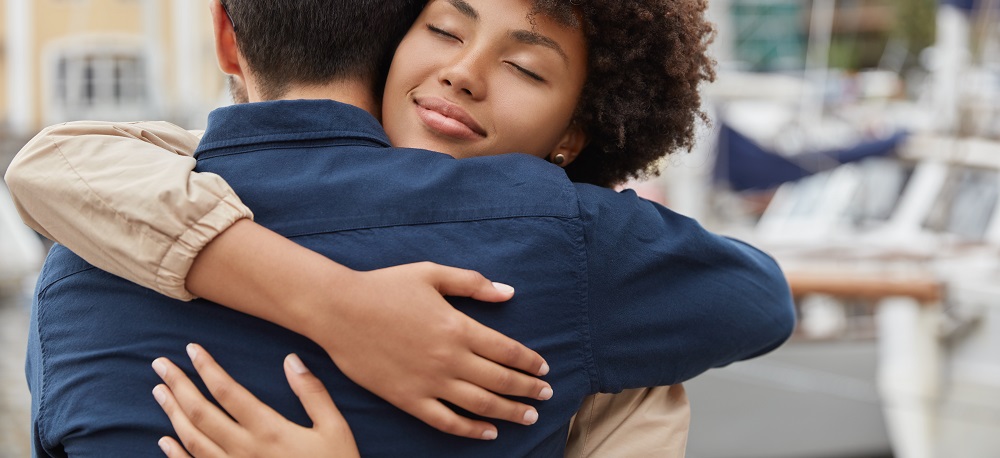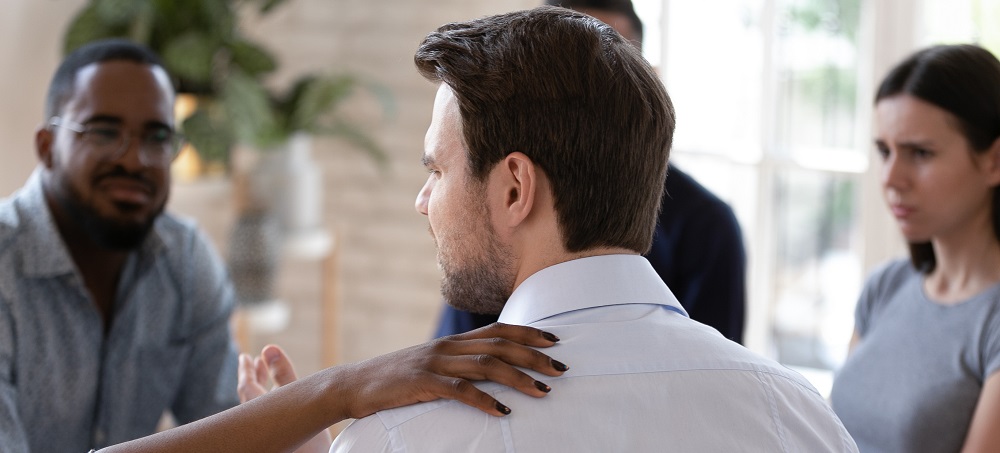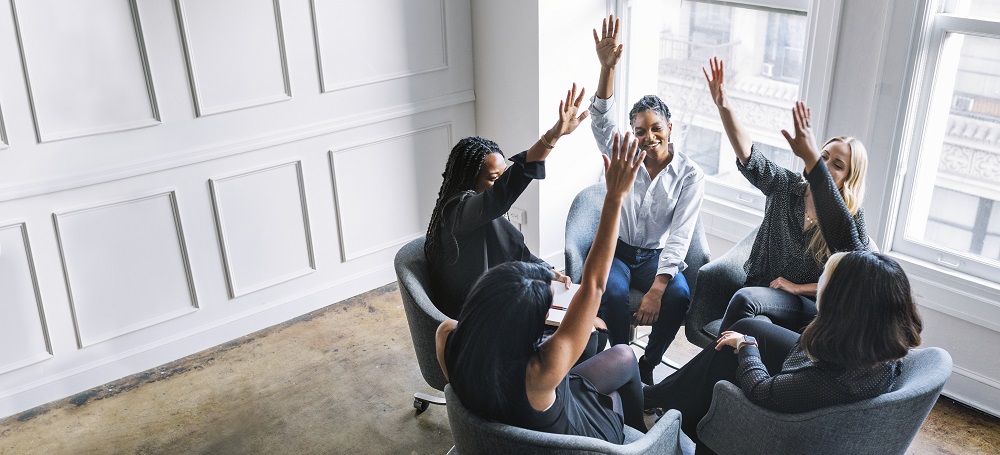Sometimes, particularly when things are going well in our lives, we underestimate the importance of healthy relationships. But when addiction strikes, and we see the extent to which friends, family members and coworkers are impacted, the role of these relationships is brought into stark relief.
As an addict travels further and further down the path of addiction, their intimate partner and children may feel increasingly desperate. Also, friends may start to distance themselves, and coworkers and managers may experience a loss of trust.
Addiction treatment and rehab have several goals. Key among them is to help the addict mend relationships that were damaged during the period of active addiction. But what exactly does a “mended relationship” look like?
Characteristics Of A Healthy Relationship
Wondering how to build positive relationships during addiction recovery? First, you must know what healthy relationships look like.

To a large extent, what constitutes a healthy relationship is a function of the nature of the relationship and of the people involved. But there are some common threads that run through all healthy, functional relationships.
By knowing what these elements are, you are in a better position to understand how to build positive relationships during recovery.
Strong Communication
One of the key things to remember is that relationships are comprised of unique individuals. No matter how “in tune” two people might be, they are still two people, and there are bound to be differences in opinion or clashes in value systems.
This is a normal part of any healthy relationship. It’s healthy as long as the individuals have the ability to communicate in a positive manner. Some ways in which to ensure good communication include the following:
- Be accountable for your words instead of blaming the other person for what you said
- Don’t listen in order to respond, listen in order to understand
- Refrain from criticizing the other person’s character – focus on the issue
Acceptance Of The Other Person
If you are in a healthy relationship, you appreciate and accept the other person for who they are. Although it is healthy and appropriate to talk to them about their behaviours that are harmful to you.
However, it should not be your goal to change their character. Telling someone that you wish they had some personality trait that they don’t is a sure way to build resentment.

Trust
No matter who the relationship is with there has to be a base level of trust that is appropriate to that relationship. This applies whether it’s with a spouse, a child, a friend or a coworker. From the standpoint of you as a participant in the relationship, this means two things:
- Behaving in a trustworthy manner: If your friend trusts you to keep personal information to yourself, or if your spouse trusts you not to engage in infidelity, it is up to you to behave in a way that enables them to maintain that trust.
- Behaving in a trusting manner: If your words or actions convey the message that you are suspicious of the other person in the relationship, this can backfire. For example, someone who trusts that their spouse is not having an affair is not going to go through their phone looking for inappropriate texts from unknown people.
Maintenance Of Individuality
Part of learning how to build positive relationships during addiction recovery is respecting the other person. People enter into relationships with those who they think they can have a good partnership with.
Friends become friends because they have something in common and feel that they can lean on each other. People become involved in intimate relationships with those they have a deep level of connection with.
Managers hire people who they think they can have a good working relationship with, and they form project teams based on who is likely to work well together.
While the importance of a healthy relationship should not be forgotten, it is equally important for the people in the relationship to respect each other as individuals. Spouses should spend quality time together, but they should also each follow their individual pursuits.
Coworkers should function well as a team, but they should value the unique contributions of each individual. Friends should share some core values, but also recognize and appreciate the differences.
Tips For Developing Positive Relationships During Addiction Recovery
Learning how to build positive relationships can affect the success of addiction recovery. The people in your inner circle can be an important part of your recovery — both during your addiction treatment program and afterward. This includes your close friends and family members, and in some cases, trusted coworkers.
You may be concerned that you burned some bridges with the people close to you during your active addiction phase. However, we have often found that people will rally around in support if you demonstrate a willingness to work on your sobriety.
Many recovering addicts have reported fearing ostracization from friends and family members. However, in the end, all they get through their recovery journey is bags of support.
Don’t forget that your loved ones are human as well, and they value the importance of healthy relationships as much as you do. If there is a lot invested in the relationship, that person is going to want to find a positive way forward. For example, if it is a long-standing friendship or there are children involved,
By keeping some key points in mind, you can build strong, healthy relationships that will carry you through recovery and beyond.

Be Committed To Recovery
Relationships are stressful. Even in the most harmonious pairings, there is occasional dissent. Also, at some point, the conflict will arise. During your addiction treatment, you will learn how to manage and resolve conflict.
However, in order to build positive relationships, you need to be sober and serious about your addiction recovery.
Related article: The Importance Of Nutrition During Drug Addiction Recovery
Avoid New Intimate Relationships
New relationships can be fraught with tension before you add addiction to the mix. This is especially true of intimate relationships. Before you start to date new people, you need to be confident in your level of recovery. Furthermore, you need to be sure that the new relationship will not detract from the work you are doing to fix your existing relationships.
Learn From The Past
One of the best things you can do for yourself as a recovering addict is to look at your past patterns of behaviour. This way, you can avoid replicating them. It is sometimes said that the best predictor of future behaviour is relevant to past behaviour.
As you are learning how to build positive relationships during recovery, you can examine this past behaviour and look for opportunities to improve.
Work On Communication
No relationship can work without healthy communication. This applies in good times, when the relationship is going well, and during the not-so-good times when things are tense.
Your relationships can be positive and productive if you understand how to talk about things that are bothering you. Also, they are great if you know how to respond when confronted with a problem, and how to manage conflicts.
Manage Your Expectations
If you break any object and glue it back together, you might repair the object, but it will always show signs of having been broken. It might be functional, and in some cases, the repair process will make the object stronger than it was before. However, that object will never go back to being exactly the way it was before it was broken.
The same applies to relationships. Understanding this concept is the key to learning how to build positive relationships during recovery. You should have the expectation of being able to build healthy relationships in addiction recovery.
However, be aware that things are unlikely to go back to the way they were before. This is not necessarily a bad thing, especially if the relationship was dysfunctional, to begin with. Manage your expectations!
Set Healthy Boundaries
Boundaries are important in any relationship. However, when addiction is involved, the lines can become blurred. During the course of your addiction treatment, your counsellors will help you through the process of being clear about your needs. Also, they will show you how to respect the needs of your friends and family members.
Focus On Your Recovery First And Foremost
During the early stages of addiction rehab, your primary focus is on your sobriety. It is important to focus on the relationships that are going to be a positive part of your life going forward.
In lieu of this, avoid relationships that have contributed to your addiction in the past. Also, avoid relationships that may increase the risk of relapse.

It’s Not Always The Addict’s Fault
As you are trying to build healthy relationships in addiction recovery, you may forget that you are not the only person in the relationship. Like many addicts, you may be spending so much time and energy focusing on your own negative behaviour. So much so that you forget about how the other person may have contributed to the problems.
A relationship involves two people, and both people need to put in some effort to create a stronger relationship. While it is true that many relationships break down as a direct result of the addiction, the opposite can also be true.
We often talk about loved ones enabling the behaviour of an addict. However, sometimes, the addict enables the other person by excusing bad behaviour and turning a blind eye to dishonesty, manipulation and abuse.
The harsh reality is that not all relationships are meant to be saved. Therefore, you may be faced with having to make a difficult decision. If continuing a relationship with someone can jeopardize your recovery and put you at risk of a relapse, it may be better to let that relationship go.
Getting Started With Addiction Treatment
The first step in learning how to build positive relationships during recovery is to actually commit to recovery. At 1000 Islands Addiction Rehab & Treatment Centre, we provide a safe, compassionate environment that is conducive to healing. We offer a place where you can learn how to cope with the stresses of life without having to use drugs or alcohol.
Also, we offer plenty of support for loved ones. As part of the addiction treatment process for residents in the USA and Canada, we will guide you and your friends and family members through the process of building healthy, happy relationships. To get started, call us at 855-601-0555.
Related article: How Alcohol Abuse Affects Family Relationships And Friendships
